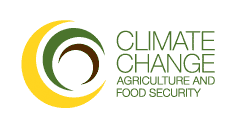he Consultative Group on International Agricultural Research's (CGIAR) Research Program on Climate Change, Agriculture and Food Security (CCAFS) has initiated three action research projects in Bangladesh, Cambodia and Honduras as part of its gender strategy, which seeks to advance climate mitigation efforts that benefit both men and women farmers.
These projects aim to understand the complex and surprising impacts agricultural practices and climate policies can have on women and local livelihoods.
 6 March 2014: The Consultative Group on International Agricultural Research’s (CGIAR) Research Program on Climate Change, Agriculture and Food Security (CCAFS) has initiated three action research projects in Bangladesh, Cambodia and Honduras as part of its gender strategy, which seeks to advance climate mitigation efforts that benefit both men and women farmers. These projects aim to understand the complex and surprising impacts agricultural practices and climate policies can have on women and local livelihoods.
6 March 2014: The Consultative Group on International Agricultural Research’s (CGIAR) Research Program on Climate Change, Agriculture and Food Security (CCAFS) has initiated three action research projects in Bangladesh, Cambodia and Honduras as part of its gender strategy, which seeks to advance climate mitigation efforts that benefit both men and women farmers. These projects aim to understand the complex and surprising impacts agricultural practices and climate policies can have on women and local livelihoods.
The three projects, led by Prolinnova, an international network hosted by CCAFS and the ETC Foundation, will focus on how women farmers impact, and are impacted by, local innovations, technologies and agricultural policies across different cultures, contexts and scales. The projects also seek to identify examples of women as leaders and problem-solvers and explore how such efforts could be replicated and scaled up.
The Bangladesh project will investigate how women farmers are using information and communication technologies (ICT) to share information with each other and their communities, with an emphasis on reducing deforestation and forest degradation while also improving crop yield, soil health and carbon sequestration.
In Cambodia, the project will examine the application of bioslurry and biochar to depleted soils, a practice farmers participating in the study pursued to address fuelwood scarcity, soil depletion and drought.
The Honduras project will explore how women are integrating social and environmental goals into agroforestry practices for food, fuel and fiber. The project, which also seeks to expand the use of energy-efficient cookstoves, will be the first agroforestry project in the country to measure carbon sequestration at the farm level. [CCAFS Blog] [Prolinnova Website] [Project Website]